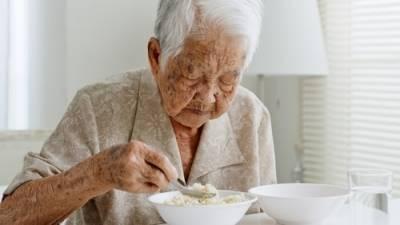Choking Hazards in Nursing Homes: What You Need to Know
 As a family member of a nursing home resident, it is important for you to be aware of the potential choking hazards that exist in these facilities. Nursing home residents are at an increased risk of choking due to age-related issues such as cognitive impairment, dysphagia (difficulty swallowing), and muscle weakness. In addition, nursing homes often serve food items that can increase the risk of choking if not properly monitored. To help protect your loved one from harm, it is essential to understand common causes of choking, as well as prevention methods for reducing risks.
As a family member of a nursing home resident, it is important for you to be aware of the potential choking hazards that exist in these facilities. Nursing home residents are at an increased risk of choking due to age-related issues such as cognitive impairment, dysphagia (difficulty swallowing), and muscle weakness. In addition, nursing homes often serve food items that can increase the risk of choking if not properly monitored. To help protect your loved one from harm, it is essential to understand common causes of choking, as well as prevention methods for reducing risks.
Common Causes of Choking in Nursing Homes
While any food item can pose a choking hazard for elderly individuals, there are some foods that are more likely than others. These include nuts and seeds, hard candy, gum, popcorn, raw vegetables (such as carrots and celery sticks), grapes and cherry tomatoes, raisins and other dried fruits, peanut butter and other sticky substances, and meats that have not been cut into small pieces. It is also important to remember that liquids can also be a choking hazard, as many elderly people cannot swallow thick liquids such as milkshakes or smoothies without assistance.
Prevention Tips for Reducing Risks
There are some steps that facilities caregivers can take to reduce the risk of choking among residents of their facility:
-
Ensure proper nutrition – Make sure residents are eating nutritious meals with plenty of cooked or soft fruits and vegetables. Avoid processed foods or fried items whenever possible.
-
Monitor fluid intake – Be mindful of how much fluid each resident is consuming throughout the day and ensure they are not drinking too much at once.
-
Cut food into small pieces – Encourage staff members to cut food items into small pieces before serving them to residents. This will make it easier for them to swallow without becoming choked up on larger pieces.
-
Supervise mealtimes – Staff members should watch over residents during mealtimes in order to identify any signs of distress or difficulty swallowing before it becomes an issue.
-
Provide liquid alternatives – If a resident has difficulty swallowing solid foods due to dysphagia or other issues, consider providing liquid alternatives such as smoothies instead.
-
Educate staff members – Make sure all staff members are familiar with signs of choking as well as how to respond if someone begins to choke on their food or drink while under their supervision.
Choking is a serious risk for nursing home residents, and it is important that family members and caregivers alike understand the potential hazards associated with choking in order keep elderly individuals safe from harm while living at a facility.
Contact an Illinois Nursing Home Neglect Lawyer for Help
If your loved one suffered an injury as a result of a preventable choking incident in a nursing home, contact an experienced Chicago nursing home injury attorney at Schwartz Injury Law. Call 312-535-4625 to discuss your situation in a free, no-obligation consultation. We are ready to help you and your loved one seek the justice you deserve.
Source:
https://www.mayoclinic.org/diseases-conditions/dysphagia/symptoms-causes/syc-20372028

 312-535-4625
312-535-4625





